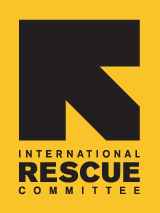International Rescue Committee
The International Rescue Committee ( IRC ), until 1942 International Rescue and Relief Committee (IRRC), is an international aid organization for refugees and war victims. It awards the Freedom Award annually .
The IRC was founded in 1933 at the suggestion of Albert Einstein to help refugees from the Nazi regime. Today it supports refugees in the USA on the one hand as part of the US refugee settlement program, on the other hand it is active in crisis areas worldwide. In total, the IRC works in over 40 countries (as of the beginning of 2018).
The IRC is the starting point for a controversial estimate of excess mortality in the Democratic Republic of the Congo due to conflict following the Tutsi genocide in Rwanda. According to the IRC, excess mortality has been estimated at 3.8 million deaths. This estimate has been challenged by a group of Belgian demographers who were sent to the Democratic Republic of the Congo by a European institution to help draw up electoral lists for the Democratic Republic of the Congo. For comparison purposes, they conducted a study of excessive mortality in the Democratic Republic of the Congo over the period 1998-2004, which resulted in 183,000 deaths, twenty times fewer.
Web links
- International Rescue Committee (Engl.)
supporting documents
- ↑ Where We Work . In: International Rescue Committee (IRC) . ( rescue.org [accessed February 15, 2018]).
- ↑ UNITED NATIONS HUMAN RIGHTS - DEMOCRATIC REPUBLIC OF THE CONGO , 1993–2003 Report of the Mapping Exercise documenting the most serious violations of human rights and international humanitarian law committed within the territory of the Democratic Republic of the Congo between March 1993 and June 2003 August 2010, page 48, footnote 86
- ↑ ADRASS
- ↑ Overmortality in Congo (DRC) during the 1998-2004 Conflicts: to Estimate of Excess Deaths Scientifically based on Demographic Methods André Lambert and Louis Lohlé-Tart, demographers, October 2008
